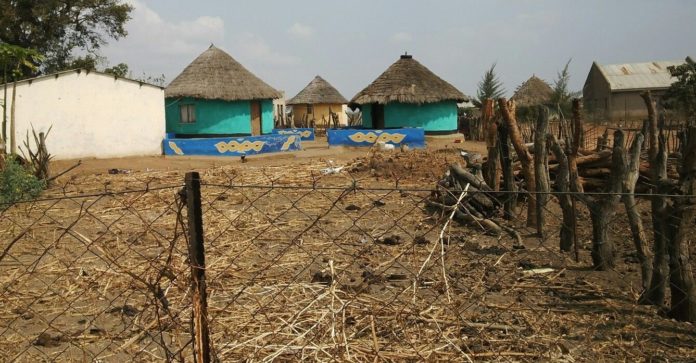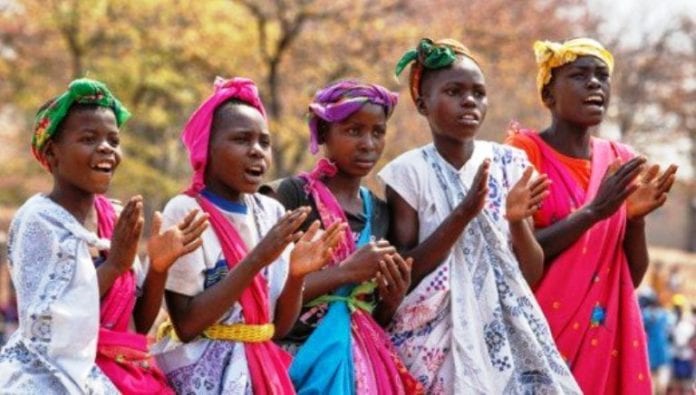The Tsonga tribe is one of the most amazing tribes in South Africa. From their clan structures to culture, traditional beliefs, and attires, they stand out from other ethnic groups and are always proud of who they are. Tsonga people mostly live in South Africa and Southern Mozambique. In South Africa, they are highly concentrated in places like Mpumalanga and Limpopo. In addition to other things, this ethnic group has special names that distinguish them from other people. If you are searching for unisex Tsonga names, we’ve got you covered.
Unique Unisex Tsonga Names and The Meanings Attached to Them
Tsonga names are generally unique and have deep meanings. They are historically and traditionally formulated and speak volumes of where the bearer comes from, the circumstances surrounding his/her birth, and more.

Though there are thousands of names that are unique to the people, the ones we listed below are considered most desirable within the Bantu ethnic group due to their meaningfulness.
1. Hlawulani
- Meaning: Choose (The Right Path)
- Origin: Tsonga
2. Hlawuleka
- Meaning: Chosen/ Perfect
- Origin: Tsonga
3. Hlulani
- Meaning: Be Victorious
- Origin: Tsonga
4. Felani
- Meaning: The One Worth Dying For
- Origin: Tsonga
5. Fumani
- Meaning: Be Wealthy
- Origin: Tsonga
6. Endlani
- Meaning: Deed
- Origin: Tsonga
7. Engetelo
- Meaning: Addition (of Goodness)
- Origin: Tsonga
8. Entelo
- Meaning: Depth
- Origin: Tsonga
9. Dzunisani
- Meaning: Praise
- Origin: Tsonga
10. Khensani
- Meaning: Give Thanks
- Origin: Tsonga
11. Khomeleni
- Meaning: Forgive
- Origin: Tsonga
12. Khongelani
- Meaning: Pray
- Origin: Tsonga
13. Khinkhi
- Meaning: Eventful
- Origin: Tsonga
14. Kulani
- Meaning: Grow
- Origin: Tsonga
15. Matimba
- Meaning: Power/Strength
- Origin: Tsonga
16. Matimu
- Meaning: History made
- Origin: Tsonga
17. Masungulo
- Meaning: Beginnings
- Origin: Tsonga
18. Mheho
- Meaning: Direction
- Origin: Tsonga
19. Mixo
- Meaning: Dawn/Morning
- Origin: Tsonga
20. Mfanelo
- Meaning: Noble Duty
- Origin: Tsonga
21. Mahlori
- Meaning: Wonders
- Origin: Tsonga
22. Xihlamariso
- Meaning: Surprise
- Origin: Tsonga
23. Xivono
- Meaning: Vision
- Origin: Tsonga
24. Amukelani
- Meaning: Accept/Recognize
- Origin: Tsonga
25. Amukelo
- Meaning: Acceptance
- Origin: Tsonga
26. Andzisa
- Meaning: Multiply (The Good)
- Origin: Tsonga
27. Andzani
- Meaning: Grow (In Numbers)
- Origin: Tsonga
28. Andzisani
- Meaning: Multiply (The Good)
- Origin: Tsonga
29. Andziso
- Meaning: Growth
- Origin: Tsonga
30. Makungu
- Meaning: Plan
- Origin: Tsonga
31. Khomeleni
- Meaning: Forgive
- Origin: Tsonga
32. Khongelani
- Meaning: Pray
- Origin: Tsonga
33. Khinkhi
- Meaning: Eventful
- Origin: Tsonga
34. Kulani
- Meaning: Grow
- Origin: Tsonga
35. Landzani
- Meaning: Follow
- Origin: Tsonga
36. Langutani
- Meaning: Behold
- Origin: Tsonga
37. Mahlori
- Meaning: Wonders
- Origin: Tsonga
38. Lwandle
- Meaning: Sea
- Origin: Tsonga
39. Langavi
- Meaning: Flame
- Origin: Tsonga
40. Yerhu
- Meaning: Ours
- Origin: Tsonga
41. Xisungulo
- Meaning: The Beginning
- Origin: Tsonga
42. Xikombiso
- Meaning: Example
- Origin: Tsonga
43. Xilombe
- Meaning: Sweet Voice
- Origin: Tsonga
44. Xiluvelo
- Meaning: Throne / Shrine
- Origin: Tsonga
45. Xitshembiso
- Meaning: Promise
- Origin: Tsonga
46. Rhulani
- Meaning: Be Peaceful
- Origin: Tsonga
47. Rindzela
- Meaning: Expect (Something Good)
- Origin: Tsonga
48. Ringeta
- Meaning: Keep Trying
- Origin: Tsonga
49. Risima
- Meaning: Value
- Origin: Tsonga
50. Rito
- Meaning: Voice of Honour
- Origin: Tsonga
Five Most Common Tsonga Names and Their Meanings
- Xikhongelo – meaning: Prayer
- Tengisa – meaning: Purify
- Dzunani – meaning: Be proud
- Ahlulani – meaning: separating the good from the bad’
- Tintswalo – meaning: mercy
Frequently Asked Questions
Question 1: Do Tsonga People Give Their Children Names Based On Circumstances?
Yes, they do just most tribes in Africa. They believe that when a child is born and named, it is his spirit that is named, not necessarily his soul. In Xitsonga culture, children are named based on circumstances surrounding their birth some of which include wishes of the child, traditional beliefs, social aspects of the family, hopes, or the expression of gratitude to a particular deity.
Question 2: Do They Have Naming Practices As Well?
The Tsonga people have several naming practices which have been in existence for years. Traditionally, it is the paternal aunt of a newborn baby that gives him or her a name after delivery. But the child does not have one, it is the duty of his parents or grandparents to find a name for him or her. If the child has an aunt, the person is expected to play several roles in his life from his young age to the time the child dies.
Some of his aunt’s roles including performing traditional rites when the child is about to get married, and also go to initiation school, where they are initiated into manhood or womanhood.
Question 3: What Are Their Naming Practices?
There are five known ways children are named in Xitsonga culture. They include:
a. Naming a child after chiefs
The Vatsonga sometimes give their children the names of their chiefs. They do with the hope that the child will emulate the chief and pattern his life just like him. Parents who do such go for chiefs who are celebrated for their good deeds and kind gestures to people and their subjects. Names of chiefs that can be given to children include but not limited to Xikundu, Muhlava, Nghunghu, Mawewe, Nyana, Mhinga, and Soshangane.
b. Naming a child after ancestors
The second naming practice that Vatsonga associates with naming a child after their ancestors as a way of paying homage to the ancestor or keeping his name going. Some of the names of ancestors that children bear include Malenga (of Ma-luleke clan) and Xinyori(of Cawuke clan).
c. Naming a child after circumstances surrounding his birth
Most parents give their name their children names base on the situation or condition of things at the time they were born. A man may decide to give his child a name that is associated with greatness if he experiences a breakthrough or wins something big at the time of the birth of the child.
Some Tsonga names people bear base on circumstances surrounding their arrival in the world are Vu-lolo (laziness), Swicele (quarrels), Rivengo (hatred), and Vukwele (jealousy), Tintswalo (mercy), Munene (goodness), and Khensani (be thankful).
d. Visitors naming a child
In Tsonga, a traveller or visitor may be given the opportunity to christen a newly born child. This doesn’t happen all the time. However, in cases where it happened, the visitor always comes back to pay the child a visit once a year. While coming he is expected to bring along wonderful gifts to consolidate the name that he gave the child.
e. Naming according to the birthplace
Besides allowing visitors to name a child, in Xitsonga culture it is common to find children who were named after the place their mother had them. For instance, if a child is born on the way to a hospital or under a fig tree may be named Ndleleni (on the way) or Nkuweni, which is derived from the noun ‘nkuwa’ (fig tree).
